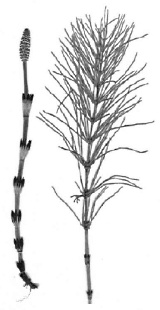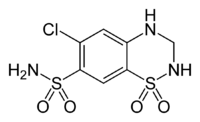|
Definition: "An ergogenic aid is any substance or phenomenon that enhances performance "
|
|
||||||||
08.05.2014 |
|
|
Supplement containing Equisetum arvense better diuretic than hydrochlorothiazide
Supplements containing extracts of Equisetum arvense – common name Horsetail – can be found in any pharmacy or health food shop. They are said to strengthen hair, skin and nails. According to Brazilian researchers they are also excellent diuretics: Equisetum arvense even works better than the diuretic hydrochlorothiazide.
The diuretic effect of Equisetum arvense is probably also the reason that extracts of the plant are often found in slimming teas or supplements: these products increase the amount of liquid that users lose in their urine, thus leading to weight loss.
Users think they are losing fat, but much of the weight they lose actually consists of liquid. As soon as the slimmers stop taking the supplements the kilos pile back on again.
The researchers performed an experiment with 36 healthy subjects aged 20-55. Three times a day they took either a placebo, or 25 mg hydrochlorothiazide [structural formula shown below] or 900 mg Equisetum arvense extract.
When the subjects took the extract this was divided over 3 intakes of 300 mg each day. The researchers used a product manufactured by the Brazilian Artesanal Pharmacy. The extract consisted of the aboveground parts of Equisetum arvense.
The figure below shows that the diuretic effect of Equisetum arvense superseded that of hydrochlorothiazide.
The researchers found no indications that Equisetum arvense affects the sodium-potassium electrolyte balance. That doesn't mean much as these effects were not found when the subjects took hydrochlorothiazide either. Nevertheless William Llewellyn's Anabolics states that hydrochlorothiazide does alter the body's sodium-potassium balance: hydrochlorothiazide use leads to potassium loss.
It would seem that the Brazilian experiment was too short to lead to visible effects on the electrolyte balance.
The researchers observed no damaging effects of Equisetum arvense on either liver or kidneys.
Source:
More: |
|



